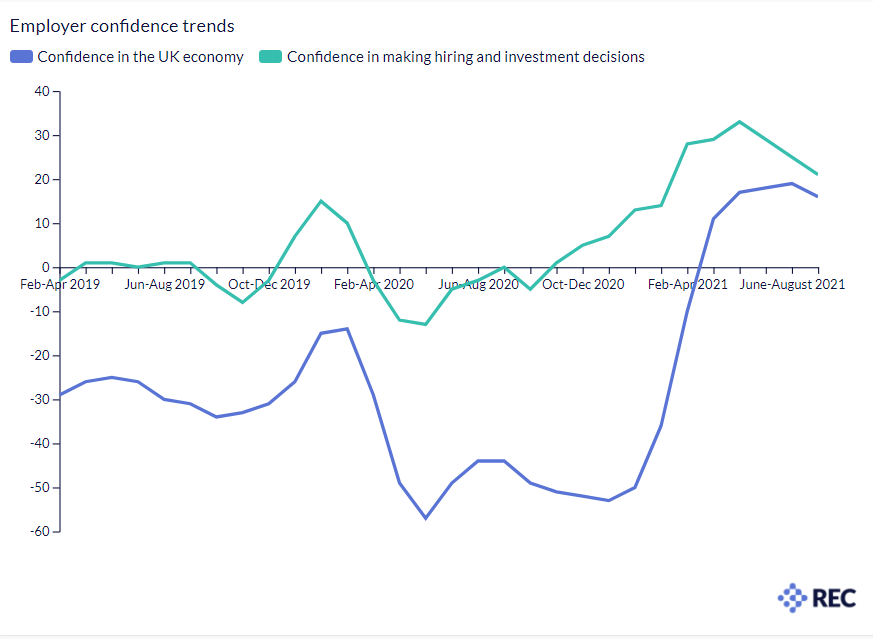This represents a third straight month of weakening and comes in the face of some winter uncertainties – rising inflation, labour shortages and the increasing spread of COVID-19. Confidence is still at a historically high level, however.
Neil Carberry, Chief Executive of the REC, said:
“We have seen sky-high demand in the labour market for months now, with businesses rushing to hire new staff as they re-opened and re-shaped to meet customers’ changing needs. That initial bounce-back was always going to pass, and this survey shows this is starting to happen.
“A slowdown of pace is not unexpected, or reason to panic – but it underlines how vital it is that government and business work together on policies that will help soften the landing and level up the UK economy. In today’s Budget, the Chancellor should look to boost employment, pay and the public finances by addressing the one thing that will drive all three – sustainable growth.
“A Budget for business would avoid sucking cash out of businesses when cashflows are under pressure, and encourage business investment. The right approach to skills – including at entry-level – new technology and better management will be key. That will help to deliver the high pay, high skill economy that we are all aiming for, one that balances the books at the Treasury and boosts regional economies. Government must also work with business to make sure its programmes are effective, and not soundbites that don’t translate from Westminster to local economies across all four nations.”
While demand for permanent staff remained high, hiring intentions for temporary workers fell back somewhat more. Demand for the next three months fell by nine percentage points to net: +8, while demand for the next 4-12 months decreased by seven points to net: +3.
The survey also found that in September, one in two (50%) UK employers were experiencing labour shortages. Of them, more than half (55%) said they thought that offering higher starting salaries for new recruits would help to address this problem, while more than a third (37%) thought improving other in-work benefits, like flexible working, would help.
Other key figures from the latest JobsOutlook include:
- Business confidence in the UK economy remained positive but fell by four percentage points to net: +16.
- Demand for permanent staff remained very high at net: +24 in the short term and net: +28 in the medium term.





